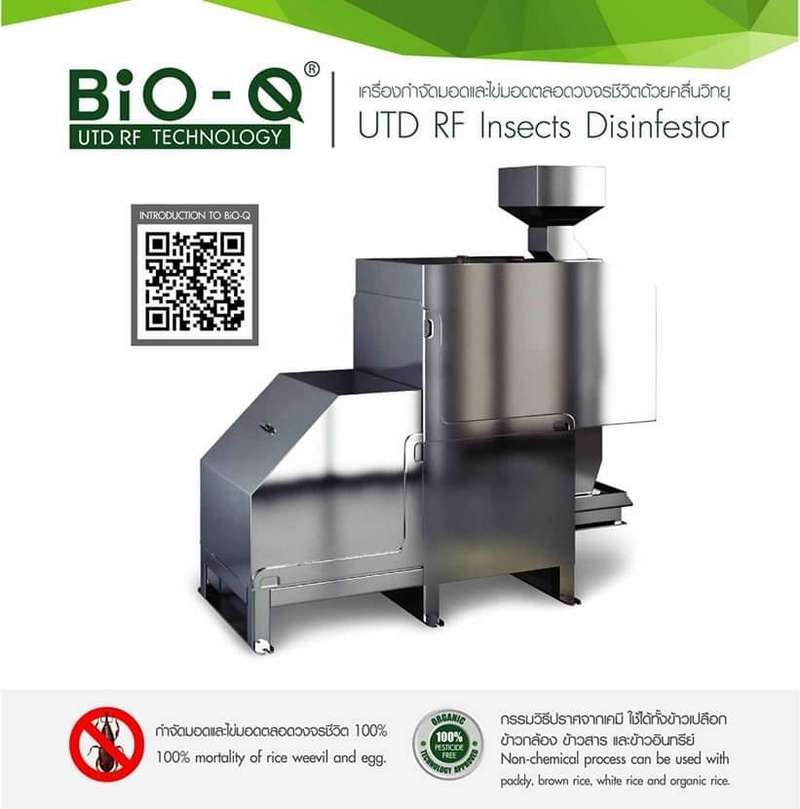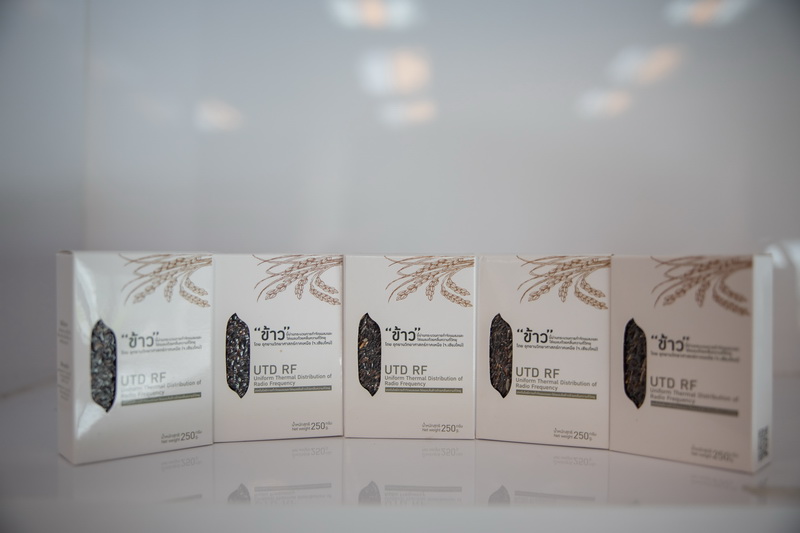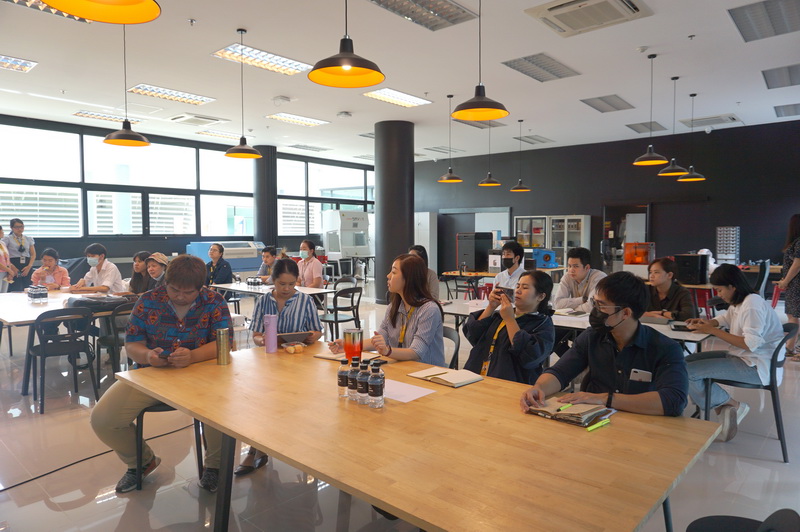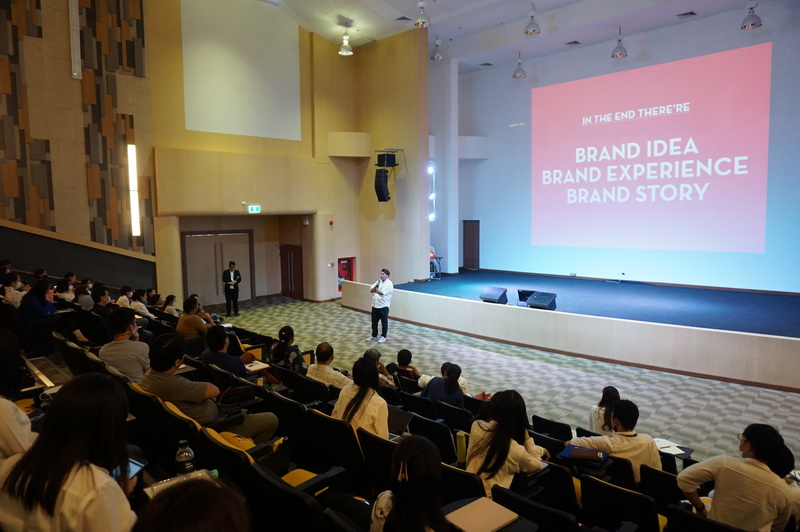“Chiang Mai University’s Science and Technology Park (STeP) has been formed to act as a bridge to help connect the research done by Chiang Mai University with the private sector,” said Assistant Professor Dr. Tanyanuparb Anantana, Director of STeP.

“While there are multiple channels and avenues in place already, whether it’s through faculties or institutes, for researchers to reach the marketplace, STeP is designed specifically for this purpose and provides a platform with complete solutions to help researchers realise their dreams by turning their research and development works into real-world success. There is an MIT quote that says that technology without a market is a failure and here at STeP we hope to help many members of the university’s academic reach their potential, get out of their comfort zone and try to make their ideas work in the business world.”
Assistant Professor Dr. Tanyanuparb went on to explain that each year the university produces around two thousand pieces of research and it is STeP’s job to look at them and consider their potential, or help researchers who come to ask for help.
“Our job is to find funding to take an idea from a lab scale through to industry scale. We call this our inside out approach,” continued Assistant Professor Dr. Tanyanuparb. “We also have an outside in approach by helping industries match their needs to the skills and knowledge of our researchers. To date we match between 200-300 such pairings per year. We are partners with organisations such as the Federation of Thai Industries and the Chamber of Commerce and we often are asked for help. We act as the contact point with the business world and help them find researchers to support their needs. This also helps many researchers who may not be comfortable negotiating with the business sector. Not only do we help with finding funding, we also help with patents. For instance a pork rind company wanted to find a way of making fat-free pork rind. We found a researcher who was working in the field to match with their needs.”
“Not only that,” continued Assistant Professor Dr. Tanyanuparb, “We also have a startup approach in that we support students or researchers, also alumni, in starting up businesses based on their research. In total we have 130 staff, half of whom used to work in the private sector, who understand the needs and language of business. We have found this to be a solid recipe for success.”


Since the formation of STeP there have been 700 businesses which have used the services of the park. Over 140 startups have also been birthed in the incubator that is STeP, with 40 coming from Chiang Mai. The estimate value contributed towards the economy is at around three billion baht. Associate Professor Dr. Suchada Vearsilp of the Chiang Mai University Faculty of Agriculture is one such example of a great success story. Inventor of the game-changing Uniform Thermal Distribution of Radio Frequency Technology (UTD RF), with development funds channeled through STeP, the RF Technology Pilot Plant has become a reality. Today, Yontpholdee Company Limited is one of Thailand’s leading modern rice milling companies and currently the only company in Thailand granted the use of this technology which they have installed at their mill using the RF technology. Another example STeP is rightly proud of is Horganice, a successful startup which began with two graduates of the university’s Faculty of Engineering. Horganice, which received TEDFUND, started off by helping dormitories and apartments surrounding the university to organise its booking and management system, the students listening to problems and adjusting their technology to offer solutions. Today Horganice has become a popular platform for dormitories and apartments across Thailand.
“Students come to us with an idea, but no pathway to success,” explained Assistant Professor Dr.Tanyanuparb. “We open up workshops for them and they can then enter various competitions. Our students have won the Startup Thailand League two years in a row now, competing against 500-600 teams from across the country. STeP has been behind their success, fostering their knowledge and learning, not just in the sciences and technology, but also engineering, management, finance and humanities. Our second startup target are researchers. We do have a caveat in that our researchers are not allowed to manage companies, but they may retain shares, which is an incentive. They are already full time lecturers at the university, so instead we foster post graduate and doctorate students to graduate and become CEO, breaking the cycle where they tend to all enter straight into academia. Once the company has been set up we even have an Ang Kaew Holding Company set up as another mechanism for lecturers to have shares. Today we have four or five companies working under this model such as Novem, the dental implant company. We aren’t expecting all the businesses to make billions and trillions. We have hope that whereas businesses may look at research findings and ignore it as inapplicable, they may now realise that these ideas and knowledge have vast potential and applications. When our students become CEOs or Directors of R&D, this is success for us.”


STeP also has had around 500-600 private companies contact them for consultation, from large companies such as PTT to smaller ones. STeP has personnel, from students to researchers, to offer, as well as space and facilities on its vast and modern campus. There are regular training programmes and workshops as well as meeting rooms of all sizes.
Today there are four main areas of interest for STeP; 1. Northern vegetation, fruits, herbs and rice; 2. Medical and biological technology; 3. Software and IT industry, digital content and IOT; 4. Renewable energy and packaging innovation. The INNO Store sells some of these products produced by STeP’s many startup alumni.
This is the first STeP of many to help bridge Chiang Mai University’s academic world with the business world.